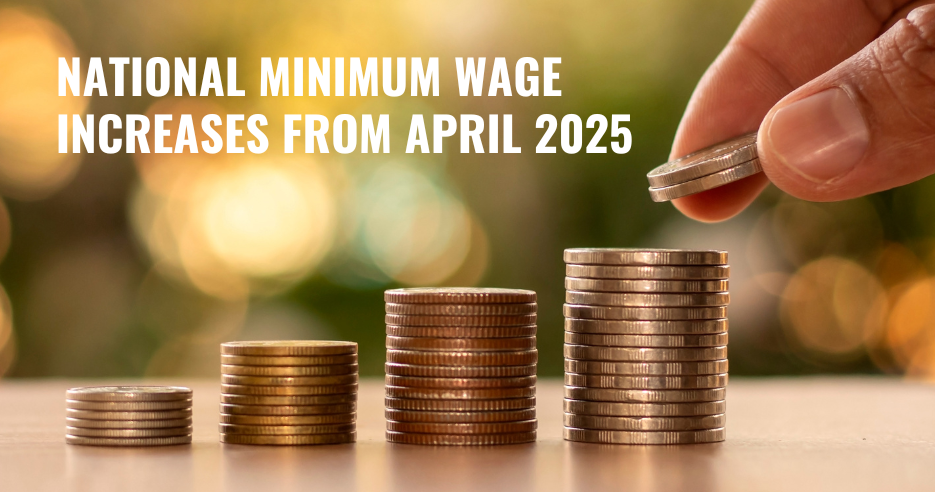Employers Need to Know
From 1 April 2025, businesses across the UK will need to prepare for an increase in the National Minimum Wage (NMW) and National Living Wage (NLW). These changes, announced by the Government in October 2024 following recommendations from the Low Pay Commission (LPC), aim to support workers with higher earnings while maintaining economic stability.
New Minimum Wage Rates from April 2025
| Category | New Rate (per hour) | Increase (£) | Increase (%) |
|---|---|---|---|
| National Living Wage (21 and over) | £12.21 | £0.77 | 6.7% |
| 18-20 Year Old Rate | £10.00 | £1.40 | 16.3% |
| 16-17 Year Old Rate | £7.55 | £1.15 | 18.0% |
| Apprentice Rate | £7.55 | £1.15 | 18.0% |
| Accommodation Offset | £10.66 | £0.67 | 6.7% |
What This Means for Employers
Employers must ensure they comply with these new wage rates to avoid penalties and maintain fair pay practices. Key considerations include:
- Payroll Adjustments – Businesses should update their payroll systems ahead of 1 April 2025 to reflect the new rates.
- Budgeting for Increased Costs – Employers must account for higher wage expenses, particularly for younger employees who will see significant percentage increases.
- Reviewing Employment Contracts – All employment agreements should align with the updated wage rates to ensure compliance.
- Impact on Apprenticeships – With an 18% increase in the Apprentice Rate, businesses relying on apprentices should review their financial planning.
Future Developments
The LPC will continue gathering evidence to inform future wage adjustments through consultations and regional visits. Employers should stay informed about potential changes and participate in consultations where relevant.
Need Assistance?
At Lucas Prestige Accountants, we help businesses navigate payroll compliance, wage updates, and financial planning to ensure smooth transitions when wage changes take effect. Contact us for expert support in managing your payroll obligations.
